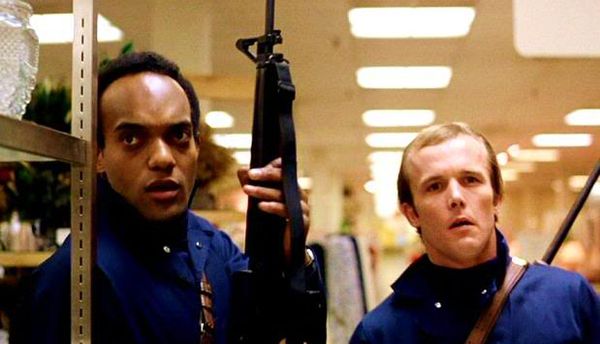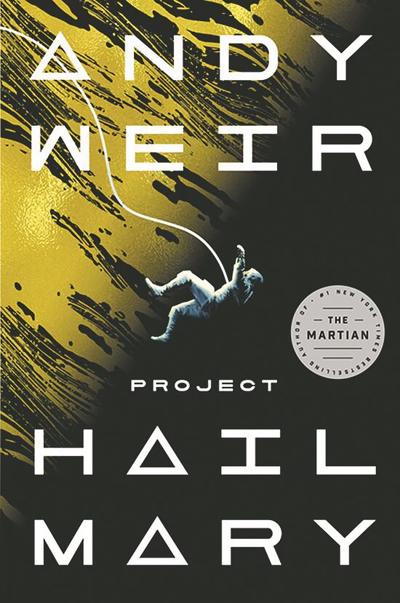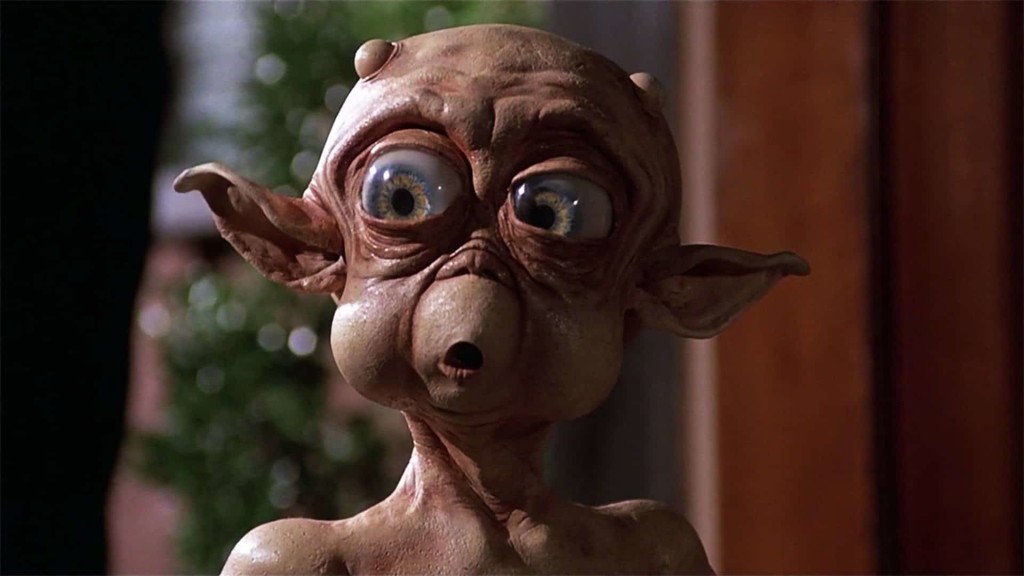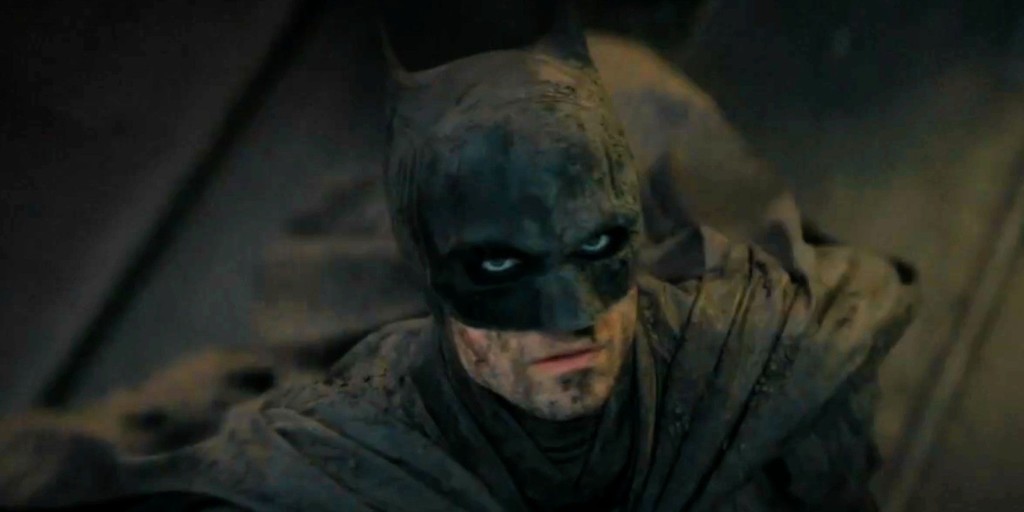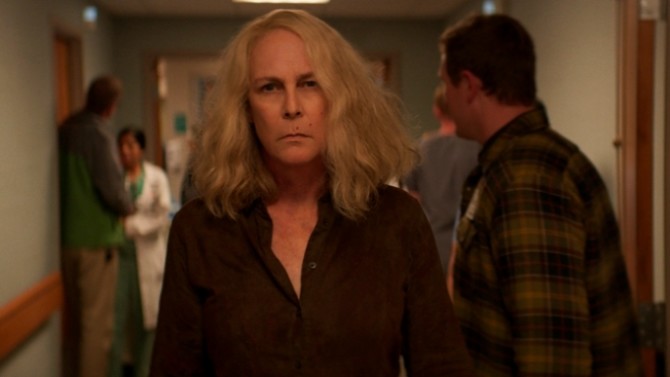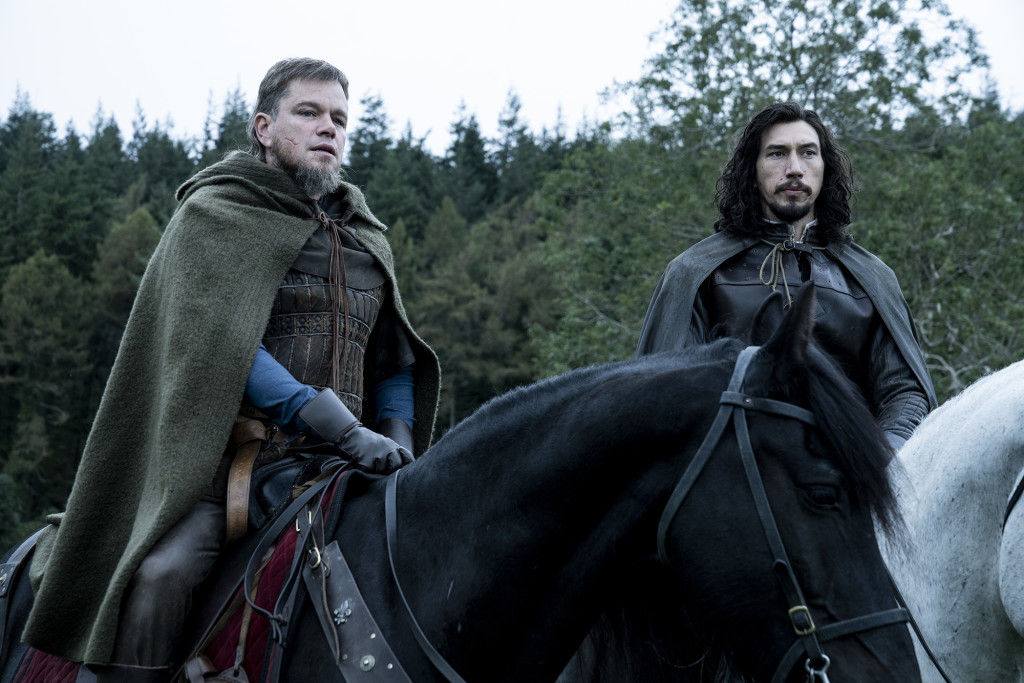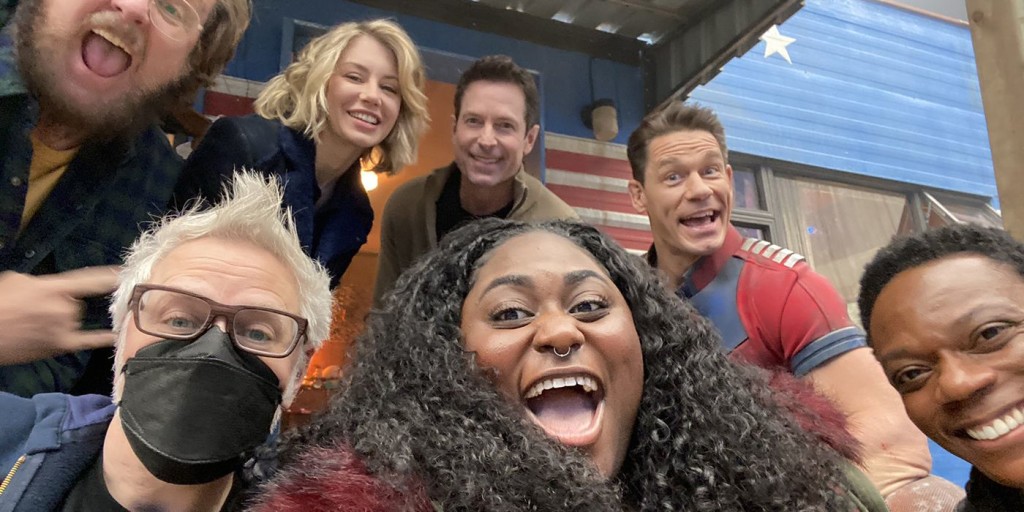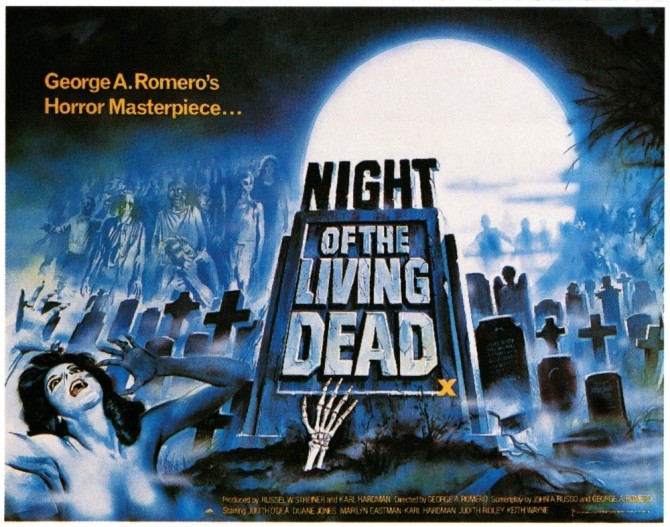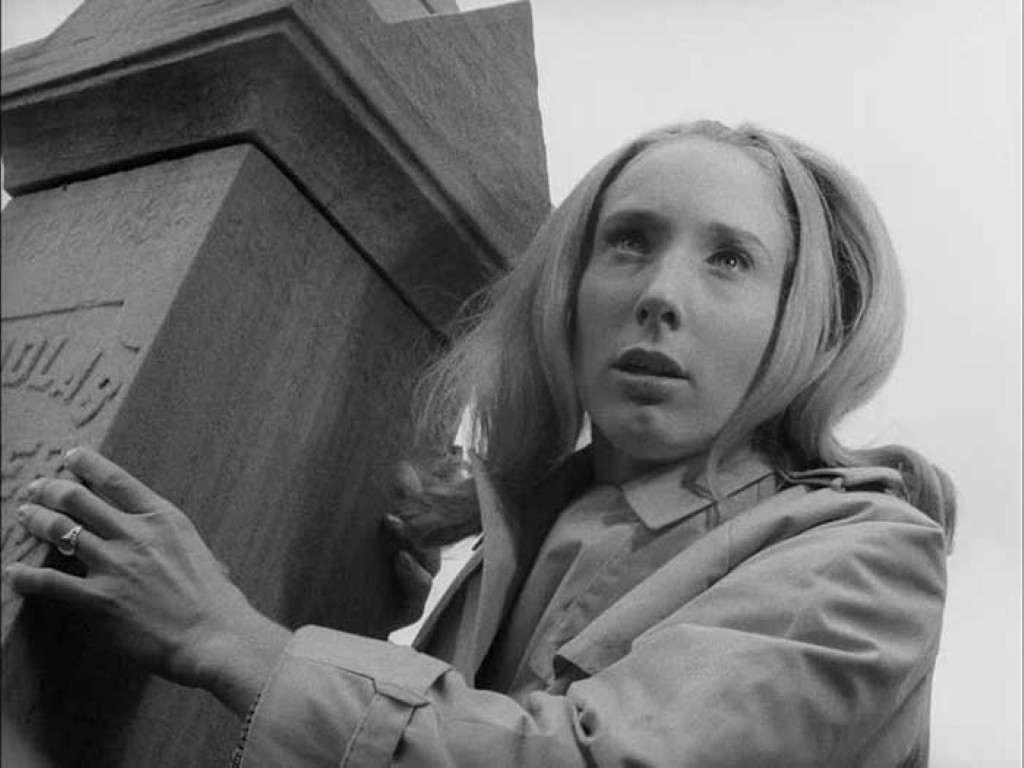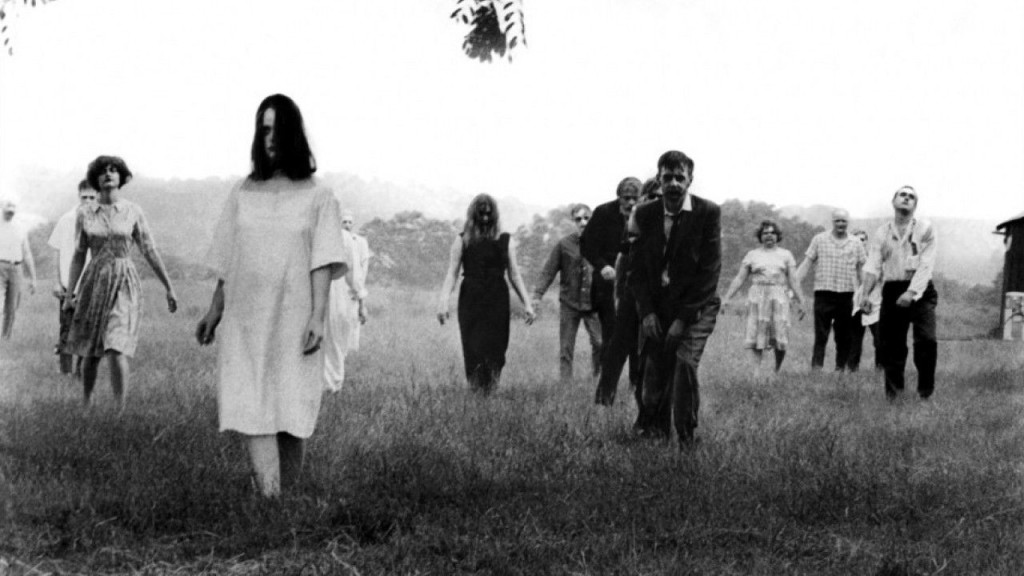Lessons from arguably the best zombie film ever made!
TODAY (THURSDAY) IS THE ‘HALLOWEEN HORROR SHOWDOWN’ DEADLINE. Get your entries in by 11:59pm tonight! The five most compelling pitches will be posted tomorrow for everyone to read and vote on. As a reminder, here’s how to enter…
What: Halloween Horror Showdown
Genre: Horror
When: Entries are due Thursday, October 21st, 11:59 PM Pacific Time
How: Include title, genre, logline, Why We Should Read, and a PDF of your script
Where: carsonreeves3@gmail.com
While I eagerly await the remainder of the horror entries, we’re going back to the zombie genre for another Halloween Horror 10 Tips! I had so much fun watching Night of the Living Dead last week, I thought we’d check out its sequel, a movie many consider to be the best zombie movie of all time. This is the movie where a group of people hole up in a shopping mall during the zombie apocalypse. Lots of good lessons to learn here!
1) Even More In Media Res – As we talked about last week, Night of the Living Dead throws us right into the action. Zombies are coming at us in the very first scene. Dawn of the Dead takes that approach and multiplies it by a thousand. We’re plopped down on a news set as zombies take over the world. Everything is falling apart in front of our eyes. People are screaming to get off the air. Newscasters are determined to stay on and keep giving the news. It’s absolute chaos. If you’ve never seen this movie, go watch it now just for the opening. It feels insanely realistic and scary. More importantly, Romero doubles down on his ‘in media res’ approach to zombies, showing us, once again, how effective it is. A tremendous opening scene (and a good follow-up scene as well).
2) Exposition Mastery – I noticed something very cool about the initial exposition being used to describe what’s happening in the world. 99% of the time in these movies, the exposition is offered through people watching the news on TV, which is a passive, and therefore, boring way to convey exposition. What Dawn of the Dead does that’s really clever is they PUT YOU IN THE ACTUAL NEWSROOM as the news is being given. Because we’re experiencing the news from the inside, as all the chaos surrounds us, the exposition feels a lot more active and compelling.
3) Create ticking time bombs WITHIN the story – When I talk about ticking time bombs, I’m often referring to the kind that frame the entire story (“The hero has 48 hours to find his missing daughter!”). But remember, you should be creating smaller “self-contained” ticking time bombs as well, as they help keep that section of the screenplay tense. For example, helicopter weatherman Stephen approaches news producer Francine and says, “Meet me out by the chopper at 9pm sharp. We’re getting out of here.” This “mini” ticking time bomb creates an intense little storyline now where we’re determined to see whether our couple gets out or not.
4) Set characters up through their reactions – I recently read a script where none of the characters stuck. I couldn’t remember them from page to page. The most common reason this happens is that the writer didn’t do enough to properly establish the character when they were introduced. A great way to establish someone is through their reactions. We see that here with Peter, the big burly SWAT team member who joins our group. He’s forced to kill a bunch of zombies who’ve been stuffed into the basement of a hotel. He must shoot each of them in the head. As he does this, one after another, he starts crying. That’s the reaction audiences latch onto. They now know this guy is a sympathetic dude who hates that he has to do this. Not only do we have a good feel for the character moving forward. But we like him as well.
5) Look for opportunities to split people up – There’s safety in numbers. Which is great in real life. But bad for horror movies. Audiences are less scared when your characters are together. Which means you should look for ways to split them up. When our heroes land their chopper for a refueling, Stephen and Francine go one way looking for supplies while Peter goes another. Now all we need is a few zombies lurking and we’ve got ourselves a couple of cool scenes to crosscut between.
6) Use your unique surroundings to create memorable moments – Not enough writers consider what’s unique about a location. Anything unique should get special attention because that’s where you’re going to give audiences things they haven’t seen before. One of the most memorable zombie kills ever occurs in Dawn of the Dead when Roger is refueling the helicopter. A zombie moves in to attack, has to climb over some boxes, and then while he’s up on the boxes, the helicopter blade slices the top of his head off. That’s way more interesting than yet another gunshot to the head. (pro-tip: A clever writer would’ve had Roger execute the kill himself, shoving the zombie up there with his own hands)
7) Old school social commentary – Probably one of the most famous examples of social commentary ever, Dawn of the Dead puts a spotlight on America’s obsession with consumption, highlighting a bunch of zombies (us) brainlessly wandering the hallways of a mall. Consume consume consume. Buy buy buy. I put this up as a reminder that if today’s highly charged social commentary topics make you squeamish, there’s other, less controversial, commentary you could be making, like Dawn of the Dead does here. If your commentary is clever enough, like “Dawn,” it will get people talking about your script for sure.
8) Start light in your second act so that it can build – Remember that your second act is going to build. So if you start out too big, you may not have anywhere to go. Romero knows we’re doing to be stuck in the mall for the whole movie so he starts off by having some fun. Have the two guys run around the mall like kids in a candy store. Everything they’ve ever wanted: absolutely free. You do this so you can start building, from “happy,” to “kinda serious,” to “serious,” to “very serious,” to “Oh shit, we’re f%$@d.”
9) Give your characters the occasional reward – Horror movies can devolve into a never-ending series of intense scenes. The monsters are getting stronger. People in the group are dying. The remaining characters are at each others’ throats. It’s important to, every once in a while, give your characters a reward that makes them feel good, and by association, makes us feel good. We get that here when our team finally gets into the gun shop. It’s a big fun moment as now they’re able to outfit themselves with a ton of weapons to take down the army of zombies. In general, there should be no singular emotion that lasts, uninterrupted, the entire screenplay. Emotion should fluctuate during a movie, from the highest of highs to the lowest of lows, and everything in between.
10) Don’t forget your relationship issues! – You have a choice when you create relationship problems between characters. You can either include a problem that’s already there at the beginning of the movie. Or you can introduce a strong relationship then add a problem to it later on. Dawn of the Dead has both. Francine is pregnant with Stephen’s baby and neither of them are sure they want to have it. That’s their issue. Peter and Roger, meanwhile, are best friends through this whole thing. There’s no problem at all. However, when Roger gets infected, Peter realizes that the time is coming where he’s going to have to kill his friend. Four characters. Two relationship issues. Both well done.
The writer of The Martian attempts to remake Interstellar… with an E.T. Twist!
Genre: Sci-Fi
Premise: A science teacher is chosen for a deep space mission that will save the earth from a virus that is slowly darkening the sun.
About: Andy Weir, who’s responsible for one of the biggest self-publishing success stories ever – The Martian – is back in his wheelhouse with his third book, which currently has a staggering 37,000 reviews on Amazon. The movie adaptation will star Ryan Gosling and be directed by Phil Lord and Christopher Miller. Drew Goddard, who adapted The Martian, will adapt this one as well.
Writer: Andy Weir
Details: 482 pages
From what I understand, Project Hail Mary was originally conceived as a space opera, like Star Wars. However, after writing 75,000 words of this space opera and thinking it was terrible, Weir abandoned the novel and went off to write Artemis instead (his second book). But he couldn’t get some of the ideas from Project Hail Mary out of his head so he went back and repurposed the story to be more like… well, the book that made him famous: The Martian. Let’s see what the results were.
Ryland Grace wakes up in a windowless techy white room. He has no idea how he got here. But he does notice there are two other people in the room with him and they’re both dead. He senses he was part of some sort of crew which means that he must be in space. Why is he in space? He doesn’t know that yet.
He starts exploring the multi-module ship and finds a science lab. He’s supposed to work on something scientific. But what? The book is set up to jump back in time as Ryland remembers the pieces of his past, which come sparingly. The first thing he remembers is that the scientists of the world realized that the sun was getting darker. And if this continued, in about 30 years, humanity would be extinct.
Uh oh.
Back on the ship, Ryland starts doing experiments and realizes that the stuff that’s darkening the sun is called astrophage. And boy is this stuff nasty. Because it’s not just darkening our sun. It’s darkening all of the nearby suns in our galaxy. That’s when Ryland realizes that he’s not in his solar system, he’s in a completely different solar system called Tau Ceti. He’s been sent here because Tau Ceti is the only star that isn’t darkening. And his team – aka, him – needs to figure out what it’s doing right.
While Ryland is trying to figure out how to conduct experiments on local astrophage, he sees another ship! But this isn’t Star Trek where you just call them up on your space Skype. This is an Andy Weir novel. Everything is realistic. There are no phones. So these two ships have to figure out how to communicate some other way.
After a long drawn out process, the other ship docs to his and Ryland meets the sole occupant of the other ship, a spider alien he names “Rocky.” Several long chapters are dedicated to the two species learning each others’ languages (again, this is an Andy Weir novel where everything is dealt with realistically) and Ryland learns that Rocky is here for the exact same reason he is. His planet discovered the same thing, that Tau Ceti is the only solar system that isn’t affected by astrophage.
(Spoilers) Long story short, astrophage was created here. And because it was created here, it has a natural predator that can kill it. Which means all these two have to do is pack up some of these predator particles and head back to their respective homes. However, when something goes wrong at the last second, Ryland will be tasked with either going home to save mankind or going back and saving his new friend.
One of the things I’m a big proponent of is figuring out what you bring to the table that nobody else does and then writing scripts that lean into that strength. Think about it. Why would we show up to see something that feels exactly like everything else we’ve seen? We seek out material, in written and produced form, that has a distinctive voice.
Weir’s voice is science. Literally NOBODY else is doing what he’s doing. Let me repeat that because it’s important. NOBODY ELSE IS DOING WHAT HE’S DOING. If you’re the only one who’s doing something, you are a commodity. The studios can’t go to JJ Abrams or Quentin Tarantino and say, “I want a movie like The Martian that is steeped in hardcore science.” They wouldn’t be able to do it. They can only go to Andy Weir.
So now I ask you – what can studios only get from you as a writer? What is your unique commodity?
But Weir’s talents don’t stop there. If he only gave you science, you’d be bored out of your mind. He’s created a unique ability to package science in a fun easy-to-read way. Part of it is that he knows he has to move the story along so he never dwells for too long on anything before jumping to the next plot beat. But, also, he has an insane love for science, which comes off in the way he writes.
That’s worth something, by the way. Readers can feel when a writer is passionate about what they’re writing. It often adds an extra level of energy to the story.
That doesn’t mean Weir doesn’t have weaknesses. He does. Project Hail Mary has a huge weakness. Weir wants to write a thriller. He wants to keep the pages moving. But he also has to explain all this backstory so you know why he’s doing this. And writing a thriller in first person with extensive backstory doesn’t make sense.
So Weir cheats. He creates this amnesia storyline whereby Ryland only remembers the past bit by bit, and each time he remembers, we cut back to the past to get that new piece of information. Conveniently, these pieces of the past come to him in perfect linear order, allowing him to tell a perfectly linear story from the past as he intercuts to the perfectly linear present.
It’s a sloppy device and it almost derails the story. I mean here’s a guy who can spend ten pages on the importance of why a door corner must be measured by the Pythagorean Theorem in space lest the entire ship blow up, yet the rules of amnesia just happen to align perfectly to the extent that each bit of remembered past matches up perfectly with the story’s structure.
I think the big question coming out of Hail Mary is, can this be adapted into a movie as good as The Martian? And the answer is I honestly have no idea. I suspected, after reading The Martian, that we’d be bored hanging out with Matt Damon in a single room through that entire second act but I was wrong. So I’m not going to write Project Mary off.
But the make or break part of Hail Mary is, without a doubt, going to be Rocky. It isn’t just creating Rocky that’s going to be difficult. It’ll be the tone. Because he kind of sounds like a slightly smarter version of E.T. But the focus here on genuine science would imply that they’d want Rocky to feel more realistic. And yet, the way he’s written, he’s like a spider-dog that communicates through singing. I’m just not sure how you make that work onscreen.
I’m getting some Jar-Jar Binks vibes – or, gasp, Mac and Me – where he could inadvertently come off as comical. If he works, the movie will work. If he doesn’t, Ryan Gosling is going to be memed to death for the rest of his life. I would go so far as to guess that they’re going to change this alien to something more human. I just don’t know how you make a spider dog with no eyes that sings work.
All in all, Project Hail Mary is a fun book. It reads like a movie. It’s got a lot of fun little twists and turns along the way. If you liked The Martian, I see no way you wouldn’t like this too. It does have some weaknesses but they never overwhelm its strengths.
[ ] What the hell did I just read?
[ ] wasn’t for me
[x] worth the read
[ ] impressive
[ ] genius
What I learned: I hear a lot of writers share stories similar to Weir’s experience on Project Hail Mary, where they start off writing something and, once they get deep into it, realize it sucks. When that happens, it can be very difficult for the writer to give up because now they have the sunk cost fallacy in play: You’ve already written so much of the story. Therefore, even if it sucks, you should still finish it. However, I think the better option is to do what Weir did. Understand that just because a novel or a script isn’t working, that doesn’t mean giving up on it now means giving up on it forever. What often happens when we get some distance from our failed stories is that we realize there are still some kernels in them that could be used to create a different better story. We can then extract those kernels and write a book like Project Hail Mary, which was pretty darn good. That’s a better option than spending years trying to make something work that’s inherently flawed.
The Batman, Halloween Kills, The Last Duel, and Peacemaker all come splashing down into the Mish-Mash Monday pool today!
People! This Thursday is the Halloween Horror Showdown deadline. If you have a horror script, make sure to enter it. It’s absolutely free and you can find out how to submit HERE. The winner will get a big Friday review next week. Don’t you dare miss out on this opportunity.
We had two major releases this weekend at the box office. The first was the Halloween sequel, Halloween Kills. That film finished with a surprising 50 million dollars at the box office, despite being available for free on the Peacock streaming service.
There’s been a lot of talk in the industry about how “simul-releases” doom a film’s box office, with the industry pointing to the simul-release of hopeful hit but ultimate dud, “The Suicide Squad” as an example. Meanwhile, movies like Shang-Chi and Venom, which only opened in theaters, do well. Throwing a wrench into that theory is that last week’s opening of Bond, which was a theaters-only release, did poorly.
The newest Halloween movie further throws that theory into flux, pulling in 50 million bucks for the weekend, which was only 5 million less than No Time To Die. To put that in perspective, “Die” cost 300 million to produce while “Kills” cost 20 million. Of course, Halloween Kills will not do anything close to No Time To Die’s international numbers. But it may actually end up turning a bigger profit than Bond, which reportedly needs to hit 800 million in revenue before it starts making money. And that’s a generous number. More realistically, it’s probably a billion.
Another layer to this drama is that Halloween Kills has a dreadfully awful screenplay. And I mean it’s REALLY bad. In retrospect, I probably should’ve given it a “what the hell did I just read?” Most people are confirming this as the film has a fast plummeting 39% Rotten Tomatoes score. But one of the most surefire bets at the box office is the direct sequel to a highly successful horror movie. And, look, it’s a movie called “Halloween Kills” coming out two weeks before Halloween. So people are going to go. I just hate when terrible screenplays are celebrated because it encourages the industry to remain lazy.
The other big release was Ridley Scott’s star-studded period piece, The Last Duel, which maybe should’ve been called The Last Time You’ll Ever See This In Theaters. There were a couple of issues with the project, the first being that period pieces haven’t done well recently, especially when the concept is small, like this one. Period pieces need that big hooky world to hang their hat on (Scott’s “Gladiator,” for example) and The Last Duel was a more personal story.
The bigger problem, though, was that the movie looked sad. And who wants to willingly be sad during a pandemic? It’s like, “Hey, Hollywood! I’m already sad! I don’t need you to make it worse.” I believe that when things are going badly in the world, people want happy movies (Shang-Chi). And when things are going well in the world, people are more open to sad movies (Titanic). The Last Duel was a big fat example of bad timing. I also think Adam Driver needs a new agent. He seems to be choosing projects solely based on the director without asking the obvious question of, “Is this a movie people actually want to see?” An actor of his caliber should not be in this many films that have bombed.
Two new big trailers hit the airwaves this weekend thanks to the DC Expo, the big one, of course, being The Batman. This movie looks DARK. And no, I’m not talking about the tone. I’m talking about the cinematography! I can barely see anything. I will say this about the movie. Batman is probably the trickiest property in Hollywood to direct at the moment because you’re coming off the most successful Batman films ever, which means you can’t copy them. However, if you go the opposite route and try to make Batman fun and playful, you look like you’re copying the Marvel format. So what do you do?
Matt Reeves’ solution was to one-down Christopher Nolan. Let’s not just go dark. Let’s go REALLY DARK. Based on how this movie looks, I’d say that was the right decision because the movie doesn’t look like anything else out there. That’s the hardest thing to do in the most over-saturated genre in history – come up with a film that doesn’t look like any other superhero film out there. Matt Reeves has done that.
The only thing I remain skeptical about is Robert Pattinson. It makes me nervous that he barely says anything in the trailer. And when he does say something, it’s usually voice over. That indicates that the director doesn’t love his star’s performance and he’s trying to hide it. I noticed the same thing in Tenet. Pattinson has very few lines in that movie and you get the sense that he, originally, had a much bigger role, which indicates that a large swath of his performance was left on the cutting room floor.
Then again, I may be overthinking this. The trailer could’ve easily been cut that way on purpose. And, look, I’m seeing more good in this trailer than bad. It looks like a cool Batman movie. The biggest thing of all is that it feels fresh. That’s all audiences want. They want something familiar but not too familiar. I really hope this is a good movie!
DC’s other big trailer release was James Gunn’s and John Cena’s “Peacemaker” show for HBO Max. This was quite the, um, trailer. I’m trying to think of a way to be respectful here because I like John Cena a lot. Let’s put it this way. James Gunn is an acquired taste. I think we all know that by now. And I would call this Peacemaker show the most James Gunny thing ever made. So if you love James Gunn, you’re going to love Peacemaker. If you’re like me, however, and approach every James Gunn project on the fence, willing to go one way or the other depending on the execution, you’re probably going to hate this. It just looks… juvenile is the best word to describe it.
It doesn’t help that nobody saw The Suicide Squad. They were expecting that film to be a big hit and for Peacemaker to be a breakout character. But that’s not what happened. You could make the argument that not a single character broke out from that movie. But, by that point, this show was already in the can so what can they do other than promote it like heck and pretend that everybody loved the film?
Next weekend we FINALLY get Dune. This will be a pivotal release for Denis Villeneuve. His big-budget Blade Runner film proved too “adult” for audiences and Dune looks to have gone down a similar path. They did a good job hedging their bets, however, with Chalamat and Zendaya, to pull in the younger crowd. But will that crowd be willing to sit through a 3 hour meditative piece on interplanetary politics? Boy oh boy am I curious to find out.
Now finish up those horror scripts and get them in by Thursday! No more procrastinating!
SPECIAL HALLOWEEN HORROR SHOWDOWN POST!
Guess what, guys? Halloween Horror Showdown is just one week away! That’s right, your Horror Showdown entries are due next Thursday by 11:59pm. Make sure you’ve got a killer logline and an alluring e-mail query. I think I already have more entries than all of Sci-Fi Showdown, which I promoted for six months. So you better bring your A-Game if you want to get picked.
In the meantime, I thought we’d take a look at one of the greatest horror movies of all time. I remember seeing Night of the Living Dead at a young age and thinking, “This is sooooo unsettling.” The movie felt more like real life than any horror film I’d seen before. Which didn’t make any sense to my peon brain at the time since the movie wasn’t even in color!
I remember this movie being more of a directing tour de force than a class in great screenwriting. But you can always learn a new writing lesson or two from a good movie. So let’s see if we can’t download a few horror lessons here.
1) In Media Res – Not every movie has to start off with your traditional 25 pages of plot and character setup. Another option, especially with horror, is to throw your characters into the story immediately (in media res). Night of the Living Dead gives us one scene – ONE SCENE (setting up the two characters in the car) – and then it’s off to the races. They’re immediately attacked in the cemetery. Note that the writer is able to do this, in part, because he knows the characters are going to be in the house for the rest of the movie, which will allow him to retroactively set up characters there.
2) Good old fashioned foreshadowing – You’re not doing it right in horror if you’re not foreshadowing. Here, in the very first scene, we get some foreshadowing when Tom is about to exit the car to join his sister. The radio station is broadcasting static. A second later, the rattled DJ comes back on and apologizes for the service interruption. Uh oh. We now know something bad is afoot! Foreshadowing!
3) Don’t make your gravesite visit cliche – What you might have overlooked in Night of the Living Dead is that in the opening cemetery scene, Tom doesn’t want to be there. He doesn’t care about visiting his father. This saps away much of the melodrama you typically see in scenes like this and makes it more realistic. Barbra, meanwhile, *is* sad. Which helps create conflict to give the scene some energy before the zombies show up. In most of the amateur scripts I read where someone visits a gravesite, it’s predictably sad and melodramatic. Which isn’t real life! In real life, people have complex feelings about the death of loved ones. Not to mention, everyone processes death in a different way. Sometimes with sadness, yes. But also with humor, anger, indifference – a whole range of emotions.
4) The reason zombies have worked for 50 years – The main reason zombies work is because they’re the ultimate “milking” monsters. Let me explain that. An argument can be made that all good storytelling is is milking situations for as long as possible. Milking situations is what creates SUSPENSE and TENSION and ANTICIPATION. These days, too many writers jump right into the action. The killer sees his victim and pounces on him immediately! That’s an amateur mistake. Instead, you want to look for scenarios that you can draw out for as long as possible. That’s why zombies will always work. No zombie kill comes right away. It’s drawwwwwwnnnnn out sloooowwwwwllllyyy. And that’s the way audiences like it. Just remember, horror is almost always about the buildup, not the payoff. A zombie movie does a lot of that work for you.
5) No Free Passes – In a horror film, there should be no safe spaces for your characters. You’re running from zombies and find a house? That house better have its own challenges once your characters enter it. In Night of the Living Dead, when the heroes get to the house, there’s a group of people living in the basement who have a different opinion on how the house should be used to fend off the zombies. That creates problems for our upstairs heroes.
6) Conflict between characters – The more the character goals of the people inside the house clash, the better. That’s where the conflict lies. All Ben cares about is boarding up the house to keep the zombies out. Barbara, meanwhile, wants to go back and save her brother. This contrast in goals keeps things heated between them, which is what you want. Just like we talked about yesterday, when characters continually agree with each other, the audience gets bored.
7) “In and Out” screenwriting – To keep things interesting in a contained location, your heroes either need to be pushing “out” on the story (doing something to change their circumstances) or the writer needs to be pushing “in” on your characters (the writer throws a new challenge at the heroes that they must deal with). With Night of the Living Dead, Ben starts off by pushing “out” on the story. He boards up every window in the place. He’s determined to make sure these things don’t get in here. Later, the writer pushes “in” on Ben and Barbara, throwing a secret second group of people into the mix from down in the basement. To see if you’ve executed your “In and Out” attack correctly, bring the script to In and Out, mention Scriptshadow, and the cashier will read the script for you right there. If she thinks you did a good job, she will give you a free double-double.
8) The secret to a strong second act (it must go from bad to worse) – The trick with second acts is to make things go from bad to worse. When Ben and Barbara first get to the house, there are 3 zombies outside. By the halfway point, there are already 30 zombies outside. It just got from bad to worse. And from there, you want it to get even WORSE. If things don’t continue to get worse, your story won’t feel like it’s progressing.
9) New characters are your best friends in limited location movies – The whole reason people make single-location movies is because they’re cheap. You only have to secure a single location! However, single location films are often fool’s gold since most writers can’t come up with enough interesting plot beats to last an entire movie. Enter new characters. New characters ARE the new locations in a single location movie. They are one of your only options to freshen up a monotonous single-location story. So use them. You can bring in one new mysterious character or keep new characters coming in throughout the story, like Night of the Living Dead did. Just make sure these characters aren’t there solely to add fresh blood. Make them interesting unto themselves and have them bring something to the story that spruces it up.
10) Night of the Living Dead is one of the original ‘low budget do it yourself’ success stories They couldn’t shoot the film in color because it was too expensive. Most filmmakers would’ve given up at this point. But Romero decided to use cheaper black and white film. Ironically, that gave the movie its creepy realistic documentary feel, which helped turn it into a classic. This is your monthly reminder that you can fast track your writing career by shooting your own scripts. If someone could shoot a film in 1967 when you had to go through the hassle of buying, shooting with, processing, and printing film, you can easily bust out that new cinema iPhone and shoot one of your scripts now. Right?
$100 OFF FEATURE OR PILOT CONSULTATION – next 72 hours only! – Sending your screenplay out there without getting professional feedback? Are you trying to get your script rejected?? Let me help you fix those script issues ahead of time so we can suck those tired readers in and give them the ride of their life. I do consultations on everything from loglines ($25) to treatments ($100) to pilots ($399) to features ($499). E-mail me at carsonreeves1@gmail.com with the subject line “CONSULTATION DEAL” if you’re interested in the deal. Otherwise, e-mail me if you have any additional questions. Chat soon!
In the vein of Dude, Where’s My Car and Pineapple Express, we get… like, uhhh, whoa mannn, what is this review about again? Oh yeah! Huh huh huh. The Aliens Are Stealing Our Weed!
Genre: Comedy
Premise: When two best friend pot-farmers wake up one day to find their entire crop of weed gone, they quickly come to realize it was the work of aliens.
About: Today’s script comes from Ryan Firpo, half the writing team for the upcoming Marvel flick, The Eternals (the other half is Ryan’s brother, Kaz). Ryan wrote and directed a short film called, Ten Years, in 2016, about a 10 year marriage reunion in Vegas that doesn’t go as planned. The short generated a lot of buzz, leading to Kevin Feige seeing it and hiring Ryan and his brother to write Eternals. The Firpos used that buzz to finish in the top spot for the 2017 Black List with their script, Ruin, which I reviewed here. Gina Rodriquez and Paramount are teaming up for “Aliens.”
Writer: Ryan Firpo
Details: 420 pages (just kidding – 111 pages)
Readability: Mostly fast
Sources on this one say it was picked up because Paramount thought it fell in line with other Paramount comedies like “Anchorman,” “Airplane!” and “Blazing Saddles.” Absurdist wild comedy has not generally done well here on Scriptshadow. But you guys know I like me some aliens. So maybe aliens stealing weed is going to change all that!
20-something best friends Candice and Izzy are living out in the middle of Nowhere, Washington, growing weed, buuuddddyyyy. Candice is like the weed-growing version of Walter White. She’s an Ivy League biologist drop-out who’s using computers to create the perfect strain of weed, what she calls, “Candizzy Chronic.”
Candice and Izzy share their ten acres of land with Cheech and Chong. I mean, the characters’ names are Bob and Jerry. But make no mistake, they will be played by Cheech and Chong. Or whoever the names of the actors who play Cheech and Chong are. Bob and Jerry always come by and, like, steal their weed. But it’s all good. They’re harmless. And at least they provide feedback on the strain, which they think is righteous, brother.
Once the crop is completed, weed buyer Reggie Sanchez shows up to test it. It takes him less than two seconds to declare Candizzy Chronic the best strain of weed he’s ever smoked, yo. He wants to buy the entire crop. Yeah baby! After years of raking dirt, Candice and Izzy are about to rake in the cash.
Except that the very next day, the weed is gone! Candice and Izzy charge over to confront their primary suspects, Bob and Jerry. But the clueless morons say all their weed has been stolen too! The rookie investigators realize that Reggie Sanchez must have done it, and they know where he’s going – Cannacon in Seattle. So off they go!
They find Reggie there, secretly follow him to his room, and then watch as he takes his human skin off to reveal that he’s an alien! WTF!!! Freaked out, Izzy says they HAVE to go to the FBI. “Do you know what they’ll think of us if we tell them an alien stole our weed?” Candice counters. You’re right, Izzy says. We have to go to the one person in the government we know, DEA Agent Mike. Who happens to be Candice’s ex-fiance!!!
Mike thinks this is obviously a made up story stemming from smoking too much Mary Jane. But after the girls beg him to help, he reluctantly comes back with them to their stolen crop. While Mike’s investigating, he looks up to see…. A flying afro??? Yes, it’s a flying afro. The group chases the afro, finally catches it, and figures out it’s some sort of drone that scouts land for good marijuana.
They allow the drone to lead them back to the alien mothership, where Frank, a 100 million year old alien, explains that in order to save humanity from killing each other, they’re going to drop the world’s weed supply into all the volcanos and hot box earth for the next 200 years to chill everyone out. Will Candice, Izzy, Bob, Jerry, and Mike go along with their plan? Or will they stop the aliens???
I still think that the best jokes come from conflict.
When there’s no conflict, the characters are just riffing, pushing out try-hard jokes, and while some hilarious writers are able to make this work, it’s often eye-rolling stuff.
You need legitimate conflict for laughs.
That’s why Pineapple Express was so successful. It wasn’t two best friends running around making pot jokes. It was a normal guy and his drug dealer. They lived completely different lives and had completely different life experiences, which is what created the conflict.
Where that really helps you out in a script is when your pairing encounters a high-stakes choice, one where if they make the wrong decision, there’ll be dire consequences. That’s when two people with diametrically opposing views on life pays off. Because they’re going to have two completely different solutions, and that’s going to result in a lot of laughs.
Candice and Izzy are best friends. There’s zero conflict there. Like none. And so they basically just agree with each other the entire movie. And, sure, there are some funny exchanges. But I’m telling you, it’s really hard to keep the joke quality high when the conflict is nonexistent.
That’s why I loved the choice to bring Mike in, the ex-fiance. He contributes some legitimate conflict to the dynamic. There’s a lot of unfinished business between him and Candice, which creates a lot of subtext. Candice had a normal life and an amazing future and ran off to start a pot farm. Mike can’t understand that choice. And he carries that grudge into every conversation.
But even then, Firpo ends up mining that conflict more for drama than comedy. I would’ve liked it if, for example, Izzy saw Mike as a threat to her current friendship with Candice. If he wins her back over, she could leave Izzy. So you’d have the two sort of fighting over Candice in a way. Or you could’ve had Mike be an asshole who had dumped Candice. And Izzy is now super-protective over Candice. You could’ve gotten a lot of humor out of her being an asshole to Mike.
To Firpo’s credit, he does go deeper than most comedy writers on the character front. He attempts to create this whole backstory where Candice had this Ivy League education and perfect future and the husband of her dreams, but she ran away from it all. She’d always used weed during the relationship to escape her feelings. Now she used weed, in the form of a career, to escape a future with Mike. So she’s used weed to avoid everything in her life and her journey is about facing up to that issue.
But even then, it doesn’t really matter, because a comedy script is nothing if it’s not funny. And this didn’t have any five-star knee-slappers. In fairness, Firpo is targeting a younger demo. Paintball shots to the balls and flying afros are probably going to be funnier to your average coed. Only had a few chuckles myself, though. So I wouldn’t recommend this.
[ ] What the hell did I just read?
[x] wasn’t for me
[ ] worth the read
[ ] impressive
[ ] genius
What I learned: There are exceptions to this rule, of course (Dumb and Dumber comes to mind), but you generally have two choices when you create a pairing for a comedy. Either make them two people who do not like each other and don’t want to be together (The Other Guys) or two people with diametrically opposing views of how to live life (a staunch conservative and knee-jerk liberal, for example). If you pair up two best friends who generally see the world the same way, you’re leaving a lot of laughs on the table.

